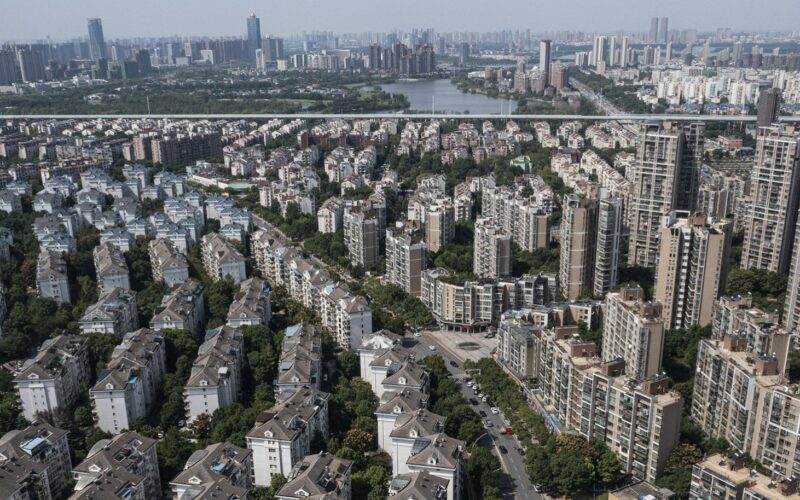China is grappling with a severe housing crisis, marked by nearly four million unwanted apartments, roughly equivalent to the area of Philadelphia. In a bold move, Chinese leader Xi Jinping and his deputies have called on the government to buy these properties. However, this plan is widely seen as insufficient to address the deeper issues plaguing the real estate sector.
Behind the visible problem of unsold apartments, there is a larger issue of about ten million homes that developers have sold but not completed. The scale of the real estate boom was immense, and the subsequent bust, which began nearly four years ago, has left a lasting impact on China’s economy.
China’s economic growth had already slowed after three decades of rapid expansion before the housing crisis intensified the downturn. Experts believe that addressing the glut of empty apartments and the overextended developers is crucial for transitioning to more sustainable growth. The real estate sector’s borrowings exceed $10 trillion, with significant debts owed to various stakeholders, including builders, small businesses, and banks.
Beijing’s abrupt cut-off of easy money in 2020 triggered a wave of bankruptcies among developers, including the high-profile default of China Evergrande. This event raised fears of a financial crisis akin to the 2008 Lehman Brothers collapse. While the fallout was managed through policy support, confidence in the housing market remains low.
To stabilize the market, China’s top leaders are now focusing on converting unsold apartments into social housing with lower rents, committing $41.5 billion for state-owned companies to buy these properties. Despite this initiative, analysts argue that the measure may be too late and insufficient, with estimates suggesting a need for $280 billion to $560 billion.
In an attempt to revive the market, Beijing has directed banks to support viable real estate companies and implemented measures to boost housing sales. Despite over 300 measures, including mortgage rate cuts and pilot programs for buying unsold apartments, housing prices continue to decline, and unsold homes keep increasing.
Vice Premier He Lifeng recently announced the government’s plan to start purchasing unsold apartments, a move reminiscent of the Troubled Asset Relief Program in the US. However, questions remain about the program’s effectiveness, given the local governments’ lack of interest in previous buyback initiatives.
Economists are skeptical about the success of this approach, particularly in regions with shrinking populations where social housing demand is low. While political pressure may drive local governments to act, the overarching challenge remains substantial.
Optimists believe Beijing is on the right track but caution that more stringent measures are needed. As Ting Lu, chief China economist at Nomura, noted, addressing the housing crisis requires patience and more decisive actions.








